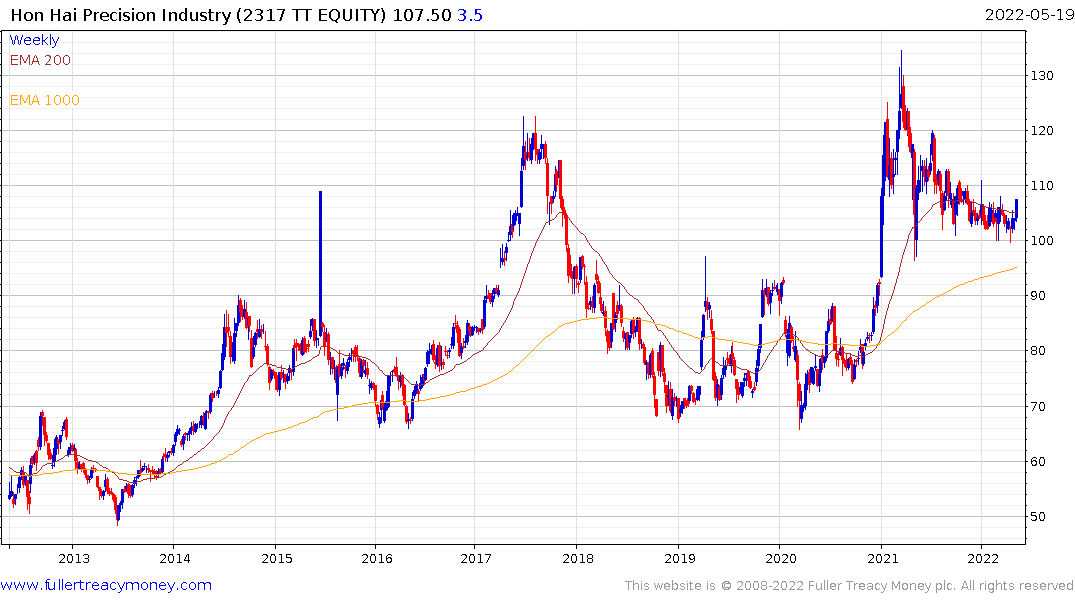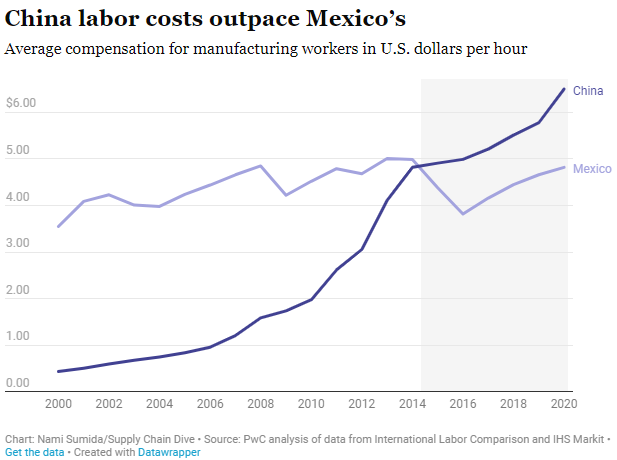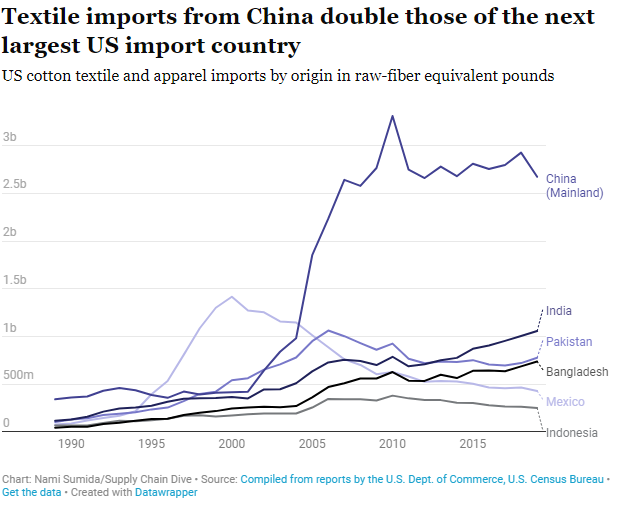China Warns US a 'Dangerous Situation' Forming Over Taiwan
This article from Bloomberg may be of interest to subscribers. Here is a section:
China frequently lashes out at the US over its backing for Taiwan, saying it amounts to interference in its internal affairs. Xi told Biden in the March call that the issue could “have a disruptive impact on the relationship between the two countries” if it was not properly handled, and has referred to China’s quest to gain control of the democratically ruled island as a “historic mission.”
Earlier this week, Admiral Michael Gilday, the top American naval officer, said Taiwan must prepare itself against potential Chinese aggression through military deterrence that includes getting the right weapons and training. Gilday said this was the “big lesson learned and a wakeup call” following the Russian invasion of Ukraine.
The US has stepped up its backing for Taiwan since the war in Ukraine started, with a group of senior senators including Republican Lindsey Graham visiting last month. China responded to that trip by conducting air and naval training near the island.
And
Last week, the State Department updated a Taiwan factsheet posted on its website, dropping a reference to not supporting the island’s independence, and describing it as “a leading democracy and a technological powerhouse.” It also said Taiwan was a key partner in the semiconductor industry and “other critical supply chains.”
On Wednesday, more than 50 senators signed a letter urging Biden to include Taiwan as a partner in the proposed Indo-Pacific Economic Framework, part of Washington’s efforts to counter China’s clout in Asia. Biden will hold a summit in Tokyo with the leaders of Japan, India and Australia as part of a trip to Asia that begins later this week.
I visited Taiwan before the pandemic because I regretted never having had the opportunity to visit Hong Kong before the handover. A large number of factors continue to converge around the Taiwan question. The country has prospered in a geopolitical grey area for decades. That is becoming progressively more difficult as geopolitical tensions amplify.
![]()

Taiwan Semiconductor is an obvious central point of contention for politicians. It is also worth remembering that the Chinese export engine was in large part pioneered by Taiwanese businesspeople. Hon Hai Precision (Foxconn) is still one of the world’s largest employers and manufacturers.
This article highlights how much the cost of doing business in China has increased. It is now cheaper to hire workers in Mexico than China. Textile exports from China are falling while those from India, Pakistan and Bangladesh have picked up market share.


Perhaps the USA and Europe are waking up to the fact that China is about to start competing for high value airplane sales. The C919 took another test flight just this week. At a minimum that aircraft will kill off demand for medium range planes in China and will compete for business with Boeing and Airbus all over Asia.
There is also still a lot of talk about “first strike” hypersonic weapons with both Russia and China touting their advances in the sector. Here is a section from a recent article following the USA’s successful test of a hypersonic missile.
But hypersonic weapons might be overhyped. "Our studies indicate that hypersonic weapons may have advantages in certain scenarios, but by no means do they constitute a revolution," David Wright and Cameron Tracy wrote last year in Scientific American. The problem? Science. The speed and maneuverability of hypersonics are constrained by factors — like atmospheric drag — that affect all missiles and airplanes. The laws of physics still exist. "When missiles fly beyond Mach 5, materials melt, airflow turns turbulent, and budgets enter the stratosphere," Philip Ross writes for IEEE Spectrum. More dangerous than the weapons themselves is the arms race they might inspire. Wright and Tracy say the mania around hypersonics "has driven big increases in spending on these systems and heightened fear, distrust and the risk of conflict among the U.S., Russia, and China."
Meanwhile, it seems more likely the USA is championing kinetic space weapons.
A big part of the reason China continues to champion COVID-zero policies is because of the impending anointment of Xi Jinping as leader for life. The original rationale for granting him longevity was so the ambition of absorbing Taiwan could be achieved. This interview with Anne Stevenson-Yang may also be of interest. Here is a section:
This is the classic means of control in imperial China: motion control, control of where people are and where they can go.
And I always thought they were going to reimpose that, and that we were going to head back toward 1978. The COVID policy is clearly an excuse. It doesn’t have anything to do with health metrics.
China has been adamant about its territorial claim to Taiwan for decades. That has not changed. The difference between now and the late 1970s is Taiwan’s high-end manufacturing is integral to the successful functioning of the Western and Chinese economies. That condition is not compatible with China taking the island over and, in one stroke, becoming the sole supplier of cutting-edge semiconductors to the world.
Back to top

